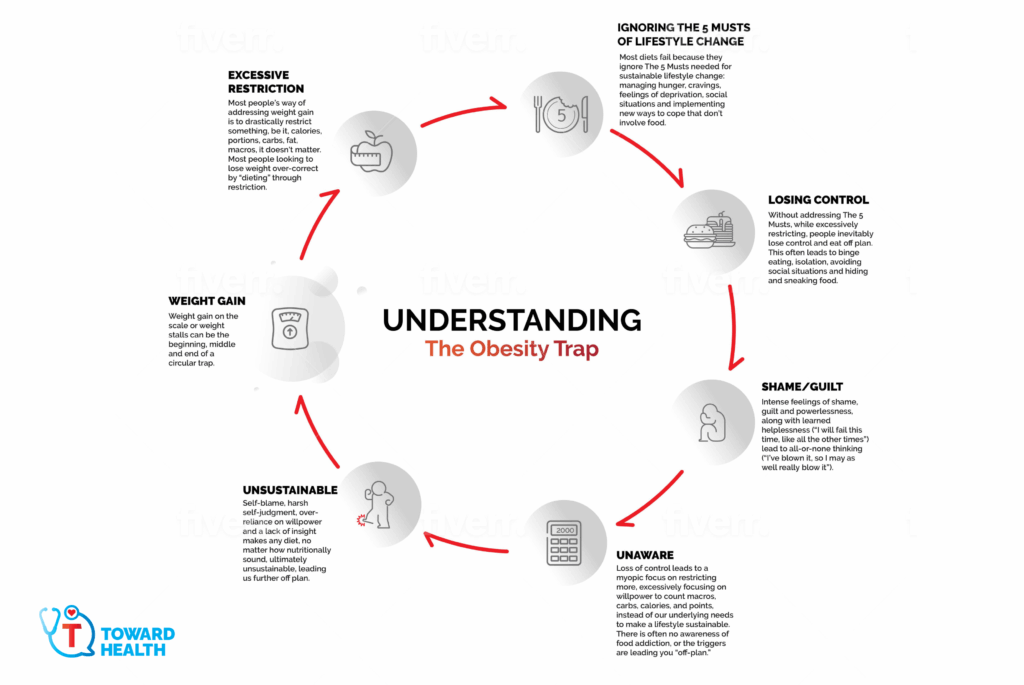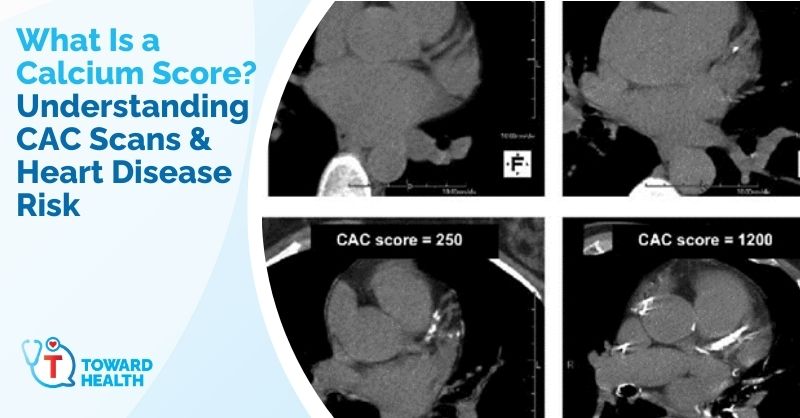As a health coach, I have a front row seat to the terrible things people think and say about themselves over their eating – the cruel self-judgment, the confessions of “moral” failure: I couldn’t do it. I am weak, bad. I am disgusting. I wish I could say that these thoughts were only what I’ve heard other people think about themselves, but as someone who has battled with food addiction my entire life, I am all too familiar with this toxic thinking.
And when this shame sets in, heavier than the food itself, it keeps us stuck in a cycle where feeling bad leads to eating more. Long after the food is gone and the wrappers are hidden away, we find strange comfort in this shame-spiral like it is an old, worn-out sweatshirt, frayed at the seams and faded from years of wear. We have newer, better options within reach, but this is the one we grab because even though it’s falling apart, it is familiar. It is what we have always done, and it is what years of conditioning by diet culture have told us is the only path forward.
In many ways, it is easier to settle into that worn discomfort than to confront what is really going on, and after we eat, yet again, in ways that do not align with our stated goals, shame enters right on cue, keeping us stuck in a story we can repeat by heart, the one where we are not good enough, lack willpower, and “know what to do, but cannot stick to it.”
While our food relationship continues to defy logic and confuse us, we know exactly what to do with shame: we hate ourselves, condemn our behavior, and vow to never do it again. It is the devil we know.
When I think back to the last time I binged, I can still feel that shame, lingering long after the food is gone. The taste of the food faded quickly, but the memories of the embarrassment stuck around to distract me from whatever led me off-track to begin with, and there is something oddly comforting and safe in fighting an enemy I know so well…me.
We think the way we eat is the problem, but often food is merely the doorway. The real payoff, the thing our nervous system has come to expect, is the self-hatred that follows. It is predictable, manageable – a feeling we have experienced a thousand times before.
Shame offers us the distraction we are really after. It is the “gift” that keeps on giving, and through this lens it becomes clear: shame is not outside of the process, but an essential part of it.
The Hidden Role of Shame in the Cycle of Food Addiction
When we think about food addiction, we usually focus on the food itself – the binge, the overeating. But the truth is, the act of eating is often just the trigger that sets off the bigger chain reaction: shame, self-loathing, hopelessness, and the eventual “F-it” moment that sends us right back to the food again.
The voice of our inner terrorist weaponizes years of conditioning and uses our vulnerabilities against us to get its way. It is a loop that feeds itself: Discomfort or stress → Eating for relief → Shame → Overeating → More discomfort from the shame → Back to eating → Repeat.

This is not just about willpower or “I’m an emotional eater.” Shame becomes our home base, a place we know so well that we keep returning to it even when it no longer serves us. And as long as shame remains part of the rotation, the cycle remains unbroken.
Which begs the question: what happens if we take shame out of the equation?
What If We Do Not Let Shame In?
What if, instead of letting shame take center stage after we eat something we wish we had not, we simply acknowledged: I ate for comfort, or distraction, or reasons I may not fully understand right now.
What if we chose to return quickly to Moment Zero and moved on without punishment? No “What is the point?” No spiraling thoughts, no “I’ve blown it again…I will keep going until Monday”
Breaking the cycle is not only about changing what goes into our mouths, but also about controlling what happens next.
Loving Ourselves into Healing
Diet culture screams that the path to worthiness is paved with hunger, deprivation, and self-loathing. It promises that if we punish ourselves enough, shrink ourselves enough, we will finally be deserving of happiness, approval, self-acceptance, and love.
“Hate myself thin” was the unspoken mantra I lived by for decades. I believed that the deeper I dug into self-hatred, the more likely I would be to escape the 400+ pound prison I inhabited.
So, when I found intuitive eating, it felt like a breath of fresh air, permission to exist as I was and feed myself without the weight of shame attached to every bite. It offered something radical: permission to be in my body without apology. That was incredibly freeing… until I realized that acceptance did not erase discomfort.
The truth I discovered along the way is that you can love yourself and still feel trapped in a body that is inflamed, exhausted, or physically limited. You can accept yourself and still want something to change.
Self-love does not mean ignoring suffering or surrendering to it. It can mean both radical acceptance and compassionate change, the common ground where love and healing coexist.
The goal is not to hate ourselves into transformation, it is to love ourselves into healing.
That means feeding our bodies in ways that make us feel alive, nourished. Moving in ways that bring joy, not dread and listening to our intuition with curiosity instead of judgment. The piece diet culture never accounts for: you cannot heal from a place of self-hatred.
Self-forgiveness is an act of liberation. It is deciding not to drag every past diet, every past binge, every moment of perceived failure into the present. It is giving ourselves permission to simply take the next right step for our health without the weight of the last thousand steps slowing us down.
Bringing It Full Circle: Shame Is the Cycle
It is easy to think of shame as something separate from food addiction, but the more we assess the pattern, the more it becomes clear that shame is not outside the cycle, it is the kindling that keeps it lit. If we can remove shame from the equation, we stand a chance of dismantling the entire process. Without shame as the “payoff,” there is no need to return to it over and over.
The most surprising thing of all was that once I started to forgive myself, the food lost some of its grip. When shame was no longer waiting for me after every misstep, the urgency to eat as a way of self-soothing began to fade.
This is not about letting ourselves off the hook. It is about choosing to feel better in our bodies. We can still work toward health and healing without brandishing our deepest insecurities as a weapon. And when we do that, we stop needing comfort from the very thing we are punishing ourselves for.
The Next Step
The next time you find yourself in that familiar post-eating shame spiral, notice it, name it, and remind yourself that shame has never helped you achieve anything other than continued discomfort. Choose to be curious: what was going on before I reached for food? Then move forward with kindness and compassion for yourself. Take the next step that supports your well-being, no matter how small.
Healing from food addiction is not only about what is on your plate, but about breaking the cycle of actions and emotions that follow the eating. True change becomes possible when we choose grace and forgiveness for ourselves, stepping out from under the weight of shame and into the freedom we’ve been craving all along.




